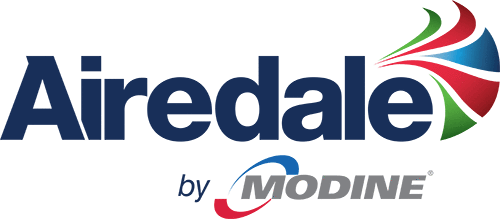Demanding supply: How to succeed in the data supermarket
Previously we have explained how Colocation providers are becoming “supermarkets” of data; with scalability, efficiency, accessibility and speed at the heart of their business models. This article will explore further how the supply chain needs to step up in order to meet this challenge and change their business models in order to succeed in a rapidly evolving marketplace.
Similarities between the rapid rise of super-CoLos to the way supermarkets grew to prominence in the retail sphere are plentiful: The economies of scale, the repeatability of their design, the ease of access and the fierce competition. One key way in which the analogies diverge however is on quality. The “pile it high and sell it cheap” approach to groceries comes with an acceptance of wastage and sometimes a compromise on quality. With colocation, this is definitely not the case: Uptime is still everything.
Understandably, the data centre supply chain is clamouring to do business with the super-CoLos. Inevitably, contracts are large and span multiple sites. This gives business certainty and provides opportunities for economies of scale. Therefore, cooling, power, IT technology, construction, fit out and software providers are all competing to take a slice of this growing global market. However, this has become very much a “survival of the fittest” scenario. The data centre market is already extremely demanding by its very nature but when it deploys at this kind of scale, the pressure and expectation cranks up a notch.
Airedale have found success in this new arena. Our cooling solutions are trusted by the largest players in the super-colo market. These, in my opinion, are the key factors behind this:
Ingenuity
The Entrepreneur Handbook states that businesses, when approaching supermarkets with a product, must “go into their stores and have a look at their existing range of products and think about where yours might fit in, both in terms of price and quality. Then think about how yours might offer something a bit special or different to what they already sell”. It is important to take a similar approach with the colocation market. Knowing your customer may seem like selling 101, but a deep understanding of how your offering works in tandem with the rest of the facility and contributes to its success is where the difference can be made. Ingenuity is important to show the client that you are willing to go the extra mile to contribute to their success. Colocation providers are often happy to be “technology guinea pigs” if given the opportunity, as long it provides them with opportunities to deliver better projects. However, the old adage of “once bitten, twice shy” will come into play if problems arise.
Collaboration
Large CoLo providers are comfortable dealing direct with their supply chain, taking on design responsibility and taking into account total cost of ownership rather than simple up front capital investment. In return, potential supply chain partners must be prepared to develop bespoke solutions that are in tune with the individual requirements of the developer and provide proof of concept in the form of data linked to metrics such as PUE. Building relationships with the engineering team are key as is demonstrating commitment by allocating senior technical resource to the design stage.
Marginal Gains
Thinking big means small gains matter. When a data centre gets up towards the 50MW mark, small gains in physical footprint of equipment, efficiency, kW of cooling, free cooling etc matter. As with supermarkets, super CoLos are competing with each other on price as well as service. The price they can offer potential clients for hosting is dependent on their running costs, which can be significantly reduced by more efficient cooling solutions. Potential partners must really push the envelope in order to eke out these gains where they can and CoLos will not shy away in investing in better solutions that will save them money in the long run.
Support
Data Centres can’t experience loss of service. Mechanical systems sometimes experience issues. These are two facts of life that are at odds with each other. This is why layers of redundancy are built in to every critical system within a data centre. However when things do go wrong it is critical that suppliers have in place support mechanisms and resource that can deliver proactive and rapid issue resolution. Airedale have a nationwide resource of trained service staff that can respond to any on-site issues 365 days a year day or night. We know that when a data centre picks up the phone we must resolve the issue first and ask questions later. Trust, transparency, ownership and responsibility are key to success in this industry.
Working on critical systems in the world of data centres is demanding and rewarding in equal measure. You cannot “dip your toe” into this market, it is not for chancers or risk takers. However, the rewarding aspect is brought to bear through the creation of true business partnerships, that flourish under the pressure of shared responsibility. At Airedale, we have succeeded through a commitment to not resting on our laurels. To constantly strive for ingenious solutions and making each project we do better than the last. We build trust through collaboration and support and we don’t shy away from a challenge.
Our founders were two men with the foresight to anticipate the growth in computer technology and the conviction that they could produce cooling systems that were better than what was already available. They could probably have never have predicted where information technology would take the planet, but their ethos lives on in the company they created.
– Darren Farrar, Marketing Manager





